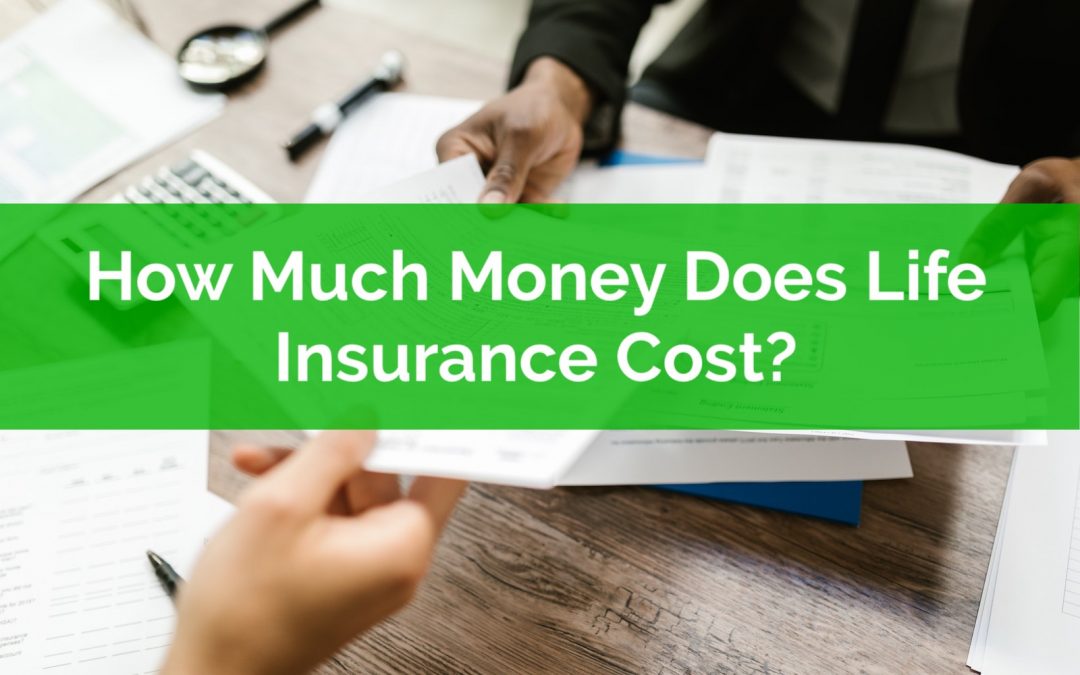
by Owen | Jan 23, 2022 | Buying A Home, Down Payment, Financial Goals, Financial Planning, Insurance And Risk Management, Saving Money
Life insurance is important, but how much life insurance should you purchase? How much money does life insurance cost? And how can you fit the monthly premiums into your current budget?
These are important questions. Life insurance is an important tool, and it can be relatively inexpensive, but the cost of life insurance can quickly change depending on certain factors.
Life insurance is important when you have people who are dependent on your income. Young families in particular have a high need for life insurance, but at the same time, young families also have a lot of demands on their cash flow.
Purchasing affordable life insurance is an important part of a financial plan and the cost of life insurance needs to fit into monthly spending without causing a lot of stress.
In this post we’ll explore some life insurance costs for a family in their 30’s with a young child. We’ll see how life insurance costs can vary depending on certain factors. We’ll also see how much life insurance costs in a real life situation.

by Owen | Sep 20, 2021 | Behavioral Finance, Budgeting, Financial Goals, Financial Planning, Income, Retirement Planning, Saving Money, Tax Planning
In a world filled with uncertainty a financial plan has this amazing ability to predict the future.
It can help predict future income, expenses, assets, and debts. It can help predict if you’ll be financially secure in the future or if you’ll be eating cat food. It can help predict if you need to save more to achieve your goals or if you can spend more now and enjoy today. In can help predict if you’ll run out of money in retirement or if you’ll end up with millions.
A financial plan isn’t a perfect prediction of course. It’s based on certain assumptions. But good assumptions can create a good prediction. There will still be some chance of the future working out differently than planned, but with a path mapped out the future becomes very real and very achievable.
They say that “failing to plan is planning to fail”. A financial plan will help you know where you’re going. It will help you create a clear roadmap to follow. If you can hit the milestones on the roadmap then success is all but guaranteed.
Here are just a few ways that a financial plan can help you predict the future and make it a reality.

by Owen | Aug 23, 2021 | Budgeting, Financial Goals, Saving Money
How much does your vehicle actually cost each year? It’s likely more than you think. With insurance, gas/fuel, maintenance, licensing, future upgrades etc. the list of vehicle related expenses is quite long.
As a general rule of thumb, the average household spends about 15% of their net income on transportation. That’s a lot of money! That basically means 15% of our working lives is dedicated to spending on transportation.
If the average family with children has net income of around $105,000 per year in Canada, that means the average family is spending approximately $15,750 per year on transportation costs!
If that spending carries forward into retirement, that $15,750 per year in annual spending would require a nest egg of $393,750 just to support the same level of spending in retirement.
So, not only will this family spend $15,750 per year on transportation, but they’ll also need to save up $393,750 before retirement to support that spending in the future too!
Spending $15,750 per year on transportation might seem like a lot of money, but as we’ll see, it’s pretty easy to get there depending on the choices you make…

by Owen | Jul 26, 2021 | Behavioral Finance, Buying A Home, Down Payment, Saving Money
Sometimes you have to take a risk. But not all risks are created equal. Some risks have rewards that greatly outweigh the potential downside. These risks can pay off big-time down the road, but its important to pick the right ones.
When it comes to personal finance there are lots of risks (and lots of rewards!). Taking a few strategic risks can do wonders for your long-term personal finances. But it’s important to understand the trade-offs.
Almost nothing in the world of personal finance is completely risk free (except maybe a guaranteed deposit with an insured bank) but there are four financial risks that can be worth taking.
If you understand the potential downsides, these financial risks can have a huge positive impact on your finances.

by Owen | May 31, 2021 | Behavioral Finance, Budgeting, Investment Planning, Saving Money
One amazing thing to consider about personal finances is the sheer amount of money that will flow through our hands over a lifetime.
Knowing how much money we’ll touch over a lifetime provides a very good incentive to get better at managing income and spending, to learn more about investing, to understand how income tax works etc. etc.
Given the amount of money we’ll handle over a lifetime, learning more about personal finances will pay dividends over many years. If you’re able to manage money well, then you’ll have a life that is free from financial stress (for the most part, it’s never possible to completely avoid financial stress).
Because of the sheer amount of money that will flow through our hands over a lifetime even a small positive change can have a significant effect.
So how much money will we “touch” over a lifetime… is it $500,000? $1,000,000? $2,000,000? $5,000,000? You might be surprised…

by Owen | Mar 15, 2021 | Buying A Home, Financial Planning, Government Programs, Investment Planning, Saving Money
The global pandemic has impacted all of us differently, our personal finances have gone through many changes and some have “weathered the storm” better than others.
FP Canada, the board that governs the Certified Financial Planner (CFP) designation in Canada, recently came out with a survey called “The Tale Of Two Pandemics” and it highlights both the positive and the negative impact that the pandemic has had on our personal finances (more details on the survey results at the end of this post).
There are some troubling stats within the survey, for example 14% of those in Ontario have been forced out of the labor market, 21% have seen an increase in expenses, and 14% have seen a reduction in work hours/income.
But the survey also highlights the opposite side of the pandemic, many people have not experienced a job loss, or a reduction in income, or an increase in expenses over the course of the pandemic.
In fact, looking at the statistics, it looks like there is a large group of people that have not been affected by the pandemic at all, and another group of people who have actually benefited financially from the pandemic.
This is consistent with the conversations we’re having with clients.
For those who have been fortunate enough to remain gainfully employed, for those who own a home or recently purchased a home, for those with a mortgage or other debt like student loans or HELOCs, and for those who are investing on a regular basis, the pandemic has actually improved their personal finances in a number of ways.
The pandemic has impacted us all differently, but for many people there have been one, two, three or more positive changes that may have actually improved their personal finances. As it turns out, this is especially true for those who had a financial plan already in place.
Here are some ways that a person’s personal finances may have improved during the pandemic…






